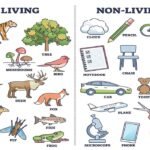Healing, whether physical, emotional, or mental, is a multifaceted process that involves various practices, therapies, and mindsets. Publications about healing play a vital role in spreading information, guiding people on their healing journeys, and fostering discussions that lead to personal and collective well-being. From scientific research to personal stories, healing publications cover a broad spectrum of topics, offering both data-driven insights and experiential knowledge. These publications contribute to the growth of the healthcare community, help individuals make informed decisions about their health, and provide support during times of recovery. By offering up-to-date information, research findings, and evidence-based methods, healing-related publications help improve health outcomes and encourage a deeper understanding of various healing practices. Whether it’s a scientific article detailing the effectiveness of a new therapy, a book sharing a personal healing story, or an online post discussing alternative methods, these publications serve as valuable resources for anyone interested in health and well-being. This article explores the impact and importance of publications about healing, showcasing how they influence the healing process and benefit individuals seeking recovery.
What Are Publications About Healing?
Publications about healing cover a wide array of materials that focus on improving and maintaining physical, emotional, and mental health. These can include peer-reviewed academic journals, self-help books, blog posts, health magazines, online articles, and newsletters. The content of these publications ranges from scientific research to personal anecdotes, all aimed at helping readers understand and achieve better health outcomes. In scientific journals, healing publications are often based on rigorous research, clinical trials, and evidence-based data. They focus on the effectiveness of medical treatments, new therapies, and clinical practices. These journals might publish studies on physical rehabilitation, pharmacological treatments, or mental health interventions. On the other hand, general wellness publications such as health magazines and online platforms often address a broader scope of healing practices, including diet, exercise, meditation, and alternative therapies. These publications aim to educate the public on how lifestyle choices and holistic approaches can improve overall health. Publications about healing not only educate but also promote self-care and personal development, offering tools and advice for individuals looking to heal or maintain their health.
The Role of Scientific Publications in Healing
Scientific publications play a fundamental role in advancing the field of healing. These sources provide credible, peer-reviewed research that offers insights into the efficacy of different therapies, medications, and medical practices. Through controlled trials and systematic reviews, scientific journals present evidence that can either confirm or question the effectiveness of healing methods, thereby guiding healthcare providers and individuals toward the most reliable options. For instance, research published in medical journals may explore how new medications affect healing times after surgery or how certain physical therapies improve muscle recovery. These findings provide clinicians with the knowledge they need to tailor treatments to individual patients. Additionally, scientific publications provide a platform for the medical community to discuss innovative healing techniques, including those related to rehabilitation, mental health, and alternative therapies. Moreover, scientific publications foster continuous learning and innovation in healing practices. By publishing new research, scientists and medical professionals challenge existing knowledge, paving the way for the development of more advanced treatments. This ongoing dialogue is essential in improving the quality of care and providing better healing outcomes for individuals around the world.
Healing Through Personal Stories and Testimonials
Personal stories and testimonials are an often-overlooked aspect Publication about healing, yet they have a profound impact on readers. Real-life accounts of overcoming illness, emotional trauma, or mental health challenges resonate with people on a deep level. These narratives serve as proof that recovery is possible and provide motivation to those who might be struggling with their own health journeys. Books, blogs, online forums, and articles often feature personal experiences where individuals share their struggles and healing processes. These stories cover a range of topics, such as cancer survival, overcoming addiction, managing chronic pain, or healing from depression. In addition to inspiring others, personal stories also provide practical insights into the healing process. For example, a person who has overcome a mental health crisis might describe the specific steps they took, such as therapy, lifestyle changes, or support groups, helping others find hope and direction. What makes personal stories so powerful is their ability to humanize the healing process. They show that healing is not linear and that setbacks are part of the journey. These narratives offer comfort, community, and the knowledge that no one is alone in their struggles. As a result, personal stories and testimonials are a critical element of healing publications, fostering both emotional support and education.
Publications and Alternative Healing Methods
Alternative healing methods have gained significant attention in recent years, with many people turning to therapies such as acupuncture, herbal remedies, aromatherapy, and energy healing. Publications about healing that focus on these alternative practices offer readers valuable information about the potential benefits of non-traditional treatments. While alternative healing methods may not always be supported by mainstream science, many individuals have found them to be effective for managing pain, reducing stress, and improving overall well-being. For example, publications about acupuncture often explain how this ancient Chinese practice helps balance the body’s energy flow, promoting physical and emotional healing. Similarly, articles on herbal medicine may explore how specific plants and herbs can treat conditions like anxiety, insomnia, or digestive issues. Aromatherapy, which uses essential oils to promote healing, is another popular subject in alternative healing publications. These practices, though not always backed by conventional medicine, have been embraced by many as part of their wellness routines. One of the key roles of these publications is to provide a platform for the discussion and exploration of alternative healing methods. By sharing research, case studies, and personal experiences, healing publications help readers make informed decisions about incorporating these methods into their own lives. In a world that increasingly values holistic approaches, these publications ensure that people have access to a wide range of healing options.
How Healing Publications Promote Mental Health Awareness
The growing awareness of mental health issues has led to a surge in publications focusing on psychological well-being. These publications serve as essential resources for educating the public about mental health conditions, offering coping strategies, and promoting the importance of seeking professional help. Mental health recovery is a crucial part of overall healing, and publications dedicated to this subject help break the stigma around mental health disorders. Mental health publications often cover a wide range of topics, including anxiety, depression, stress management, and trauma recovery. They provide readers with research-backed insights into how these conditions affect the brain and body, as well as practical advice on managing symptoms. Many of these publications also emphasize the significance of therapy, counseling, and support networks in the healing process. Additionally, these publications often feature personal stories from individuals who have experienced mental health struggles and recovery. These stories not only offer hope and inspiration but also help normalize mental health challenges by showing that many people face similar struggles. Publications on mental health create a safe space for open discussions and educate readers on the importance of prioritizing mental well-being as part of a holistic approach to healing.
How to Access Reliable Healing Publications
In an age of information overload, finding reliable healing publications can be challenging. However, it is essential to seek out credible and trustworthy sources that provide accurate, evidence-based content. Accessing reliable publications helps ensure that the information you receive is scientifically sound and helpful in your healing journey. One of the best ways to access reliable healing publications is to look for peer-reviewed journals. These journals are scrutinized by experts in the field before publication, ensuring the quality and accuracy of the content. Websites like PubMed and Google Scholar provide access to a wide range of medical and health-related journals. For non-scientific content, established organizations and websites such as the Mayo Clinic, Harvard Health, and WebMD are great places to find trustworthy information. These sites offer articles, research summaries, and expert opinions on a wide variety of healing topics, from medical treatments to mental health practices. Social media and blogs can also be valuable resources, but it’s important to evaluate the credentials of the authors and the quality of the content. Be cautious of articles without reliable sources or those promoting unproven treatments. By following these steps, you can ensure that you’re accessing publications that offer accurate and helpful information for your healing journey.
Benefits of Reading Healing Publications for Personal Growth
Reading healing-related publications offers numerous benefits that contribute to personal growth and development. One of the primary advantages is that these publications provide the tools, knowledge, and resources necessary for individuals to take charge of their own health. Whether it’s learning about new health trends, discovering healing methods, or gaining insights into self-care practices, these publications empower individuals to make informed decisions about their well-being. Additionally, healing publications promote mental and emotional wellness by offering advice on mindfulness, stress management, and emotional healing. Readers can learn how to cope with difficult emotions, manage anxiety, or practice gratitude—all of which contribute to personal growth and self-improvement. Beyond emotional benefits, reading about healing also offers practical knowledge about physical health. For instance, an article about exercise may encourage someone to adopt a fitness routine, while a nutrition guide may inspire healthier eating habits. Healing publications help individuals develop a deeper understanding of the mind-body connection, fostering holistic growth and healing. By regularly reading publications about healing, individuals gain a sense of empowerment and motivation. The knowledge shared in these publications not only aids in recovery but also encourages ongoing self-improvement and wellness.
Conclusion
Publications about healing are a valuable resource for anyone seeking to improve their health and well-being. Whether focusing on scientific research, personal stories, or alternative therapies, these publications offer important information that contributes to the understanding of various healing methods. By exploring credible sources, individuals can gain insights into new practices, learn about mental health, and find inspiration for their personal healing journeys. Ultimately, publications about healing support individuals in their quest for better physical, emotional, and mental health, providing them with the knowledge and guidance they need to thrive.











